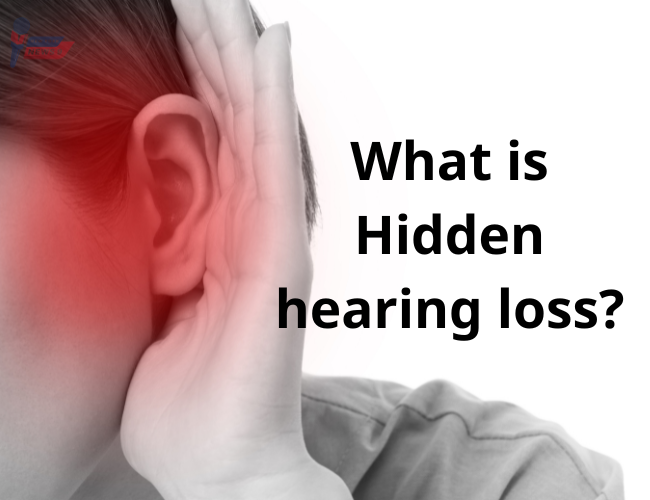This type of hearing loss doesn’t show up on traditional tests, but that doesn’t make it any less troublesome to live with.
You’re trying to listen to your friend in a crowded restaurant or follow a story someone’s telling at a party. The problem? You can’t make out most of it.
That raises some red flags for your hearing. And since hearing loss and noise pollution are both on the rise, you know you should look into it. So you might schedule a visit to an audiologist to get your hearing tested. The test comes back normal, though. The audiologist happily tells you that your hearing isn’t impaired.
But then you’re back in a noisy setting. This time, you know you’re not hearing well. You’re not losing your mind. You’re probably dealing with hidden hearing loss.
What is Hidden Hearing Loss?
Hidden hearing loss is a form of auditory impairment that results from damage to the synapses connecting the inner hair cells to the auditory nerve fibers in the cochlea. Unlike conventional hearing loss, which typically affects the hair cells themselves, hidden hearing loss specifically targets the neural connections responsible for transmitting auditory signals to the brain.
This condition poses a unique challenge as it may not be apparent on standard hearing tests. Individuals with hidden hearing loss often have no trouble hearing pure tones, but they struggle to comprehend speech, particularly in noisy or crowded environments. As a result, they may experience difficulties participating in conversations, leading to social isolation and reduced quality of life.
How to Know If You’re Experiencing Hidden Hearing Loss?
Identifying hidden hearing loss can be tricky, as it may not manifest in the same way as other types of hearing impairment. Some signs to watch out for include:
- Difficulty understanding conversations in busy places, such as restaurants or crowded gatherings.

- Feeling fatigued or mentally drained after prolonged exposure to noisy environments.
- Having no trouble hearing during hearing tests but still experiencing communication challenges in real-life situations.
- Noticing a decrease in your ability to follow conversations, especially when multiple people are speaking simultaneously.

In general, if you find yourself frequently struggling to understand speech in noisy settings, despite having no issues with hearing individual sounds or tones, hidden hearing loss could be a possibility. Provide you suspect hidden hearing loss, it is crucial to consult with an audiologist or hearing healthcare professional for comprehensive testing and evaluation.
Getting Treatment
If you suspect that you might be experiencing hidden hearing loss, it is advisable to consult both your doctor and an audiologist. Once you’ve taken a hearing test and if you believe you have a hidden hearing disorder, discuss this with them. Additional assessments, like speech-in-noise tests, can aid in identifying the condition.
The audiologist will assist you in developing effective tools and strategies to enhance your hearing and comprehension abilities. Typically, conventional hearing aids might not be the ideal solution, as they amplify all sounds indiscriminately, making it challenging to focus on specific sounds. Nonetheless, with advancements in technology, some hearing aid models can now filter out background noise or emphasize sounds coming from particular directions, which can be particularly beneficial for hidden hearing loss.
Here are some techniques you can try:
- Request people to speak more slowly (this is generally more effective than asking them to speak more loudly).
- Position yourself directly facing the person you want to hear.
- Choose a location where background noise is behind you when sitting or standing.
- Opt for a noise-blocking booth or location when dining out.
- Prioritize quieter times and settings whenever feasible.
- Learn lip reading to complement your hearing abilities.
- Utilize closed captions to enhance comprehension in various situations.
- Use a directional microphone app on your phone to focus on specific sounds.
Conclusion
Hidden hearing loss is a subtle but significant condition that affects the neural connections within the inner ear, leading to challenges in speech comprehension, particularly in noisy environments. While it may not be easily detectable through traditional hearing tests, recognizing the signs and seeking professional evaluation is essential for appropriate management.
If you suspect hidden hearing loss or face communication difficulties in noisy settings, don’t hesitate to consult with an audiologist. By staying proactive and informed, you can take steps to improve your hearing health and overall well-being, ensuring that you remain connected to the sounds and voices that enrich your life.
By ChatGPT











